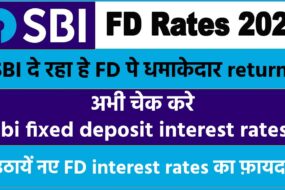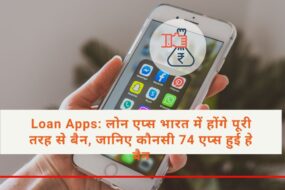
Send Money to Someone Without a Bank Account
Sending money to someone without a bank account may seem like a challenge, but it’s a common need in today’s diverse financial landscape. Whether you’re helping out a friend in need, supporting family members in another country, or conducting business transactions, there are various methods available to facilitate such transfers. In this guide, we’ll explore the different options and provide insights on how to navigate this process securely and efficiently.
Why People May Need to Send Money Without a Bank Account
Several reasons may prompt individuals to send money to someone without a bank account. Some recipients may not have access to traditional banking services due to various factors such as lack of documentation, living in remote areas with limited banking infrastructure, or personal preferences to avoid banks. Additionally, in certain situations, people may need to send money quickly, and traditional banking channels may not offer the speed required.
Traditional Methods of Sending Money
Cash Pickup Services
One of the most straightforward ways to send money to someone without a bank account is through cash pickup services. Companies like Western Union and MoneyGram operate extensive networks of agent locations worldwide, allowing recipients to collect cash quickly. Senders can initiate transfers online, over the phone, or by visiting a physical agent location, and recipients can collect the funds by presenting valid identification at a designated pickup point.
Money Transfer Services
Another option is to use money transfer services that cater to individuals without bank accounts. Companies like Ria and WorldRemit offer convenient transfer options, including cash pickup, mobile wallet transfers, and even home delivery in some regions. These services often provide competitive exchange rates and lower fees compared to traditional banks, making them an attractive choice for many senders.
Emerging Digital Solutions
Mobile Wallets
The rise of mobile technology has enabled the proliferation of mobile wallet services, allowing users to send and receive money without a bank account. Platforms like PayPal, Venmo, and Cash App allow users to link their debit cards or load funds directly into their digital wallets, enabling seamless peer-to-peer transactions. Recipients can then withdraw funds from their mobile wallets through partner ATMs or use the balance for online purchases.

Cryptocurrency Transfers
For those seeking alternative financial solutions, cryptocurrencies offer a decentralized approach to sending money globally. Bitcoin, Ethereum, and other digital currencies can be sent directly to recipients’ digital wallets without the need for traditional banking intermediaries. While this method may require both the sender and recipient to have some familiarity with cryptocurrency technology, it provides a borderless and secure means of transferring funds.
Factors to Consider When Choosing a Method
When selecting a method to send money without a bank account, several factors should be taken into account:
- Cost: Compare transfer fees, exchange rates, and any additional charges associated with the transaction.
- Accessibility: Consider the availability of pickup locations or digital wallet services in the recipient’s area.
- Security: Prioritize reputable service providers with robust security measures to protect your funds and personal information.
Steps to Sending Money Without a Bank Account
- Research and Comparison: Explore different transfer options and evaluate their features, fees, and reliability.
- Verification Process: Ensure that both the sender and recipient complete any necessary verification procedures to comply with regulatory requirements.
- Initiating the Transfer: Follow the instructions provided by the chosen service provider to initiate the transfer securely.
- Recipient Collection: Communicate the necessary details to the recipient for collecting the funds, whether through a pickup location or digital wallet.
Read More: What’s the Best Premium Travel Credit Card?
Tips for Secure Transactions
- Verify Recipient Information: Double-check recipient details to avoid sending funds to the wrong person.
- Use Secure Channels: Always initiate transfers through reputable platforms with encryption and authentication measures in place.
- Monitor Transactions: Keep track of your transactions and report any suspicious activity to the service provider immediately.
Conclusion
Sending money to someone without a bank account is a common need that can be addressed through various traditional and digital channels. By understanding the available options, considering key factors such as cost and security, and following best practices for secure transactions, senders can navigate this process with confidence and convenience.
FAQs
- Can I send money internationally without a bank account?
- Yes, many money transfer services offer international transfer options for individuals without bank accounts. However, availability may vary depending on the destination country and service provider.
- How long does it take for funds to be available for pickup?
- The time it takes for funds to be available for pickup depends on the chosen transfer method and the destination country. Some services offer instant transfers, while others may take a few hours or days to process.
- Are there any limits on the amount of money I can send without a bank account?
- Transfer limits may vary depending on the service provider and the recipient’s country of residence. Be sure to check the terms and conditions of the chosen service for information on transaction limits.
- What documents do recipients need to collect cash transfers?
- Recipients typically need to present valid identification, such as a government-issued ID or passport, to collect cash transfers from pickup locations.
- Is it safe to send money without a bank account?
- While sending money without a bank account is generally safe, it’s essential to choose reputable service providers and follow best practices for secure transactions to minimize the risk of fraud or unauthorized access to funds.



